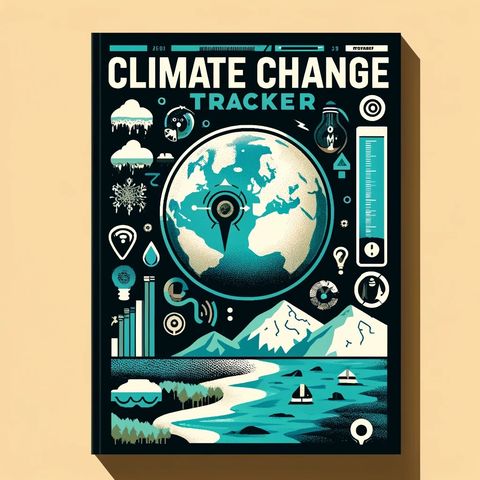Climate change fuels Midwest extremes once again
Jul 6, 2024 ·
3m 6s

Download and listen anywhere
Download your favorite episodes and enjoy them, wherever you are! Sign up or log in now to access offline listening.
Description
Extreme weather events have increasingly made headlines, with regions like the Midwest facing brutal conditions ranging from oppressive heatwaves to sudden, severe floods. These phenomenona are closely linked to the...
show more
Extreme weather events have increasingly made headlines, with regions like the Midwest facing brutal conditions ranging from oppressive heatwaves to sudden, severe floods. These phenomenona are closely linked to the broader narrative of climate change, with changes in the global climate affecting weather patterns in complex ways. While scientists caution against attributing any single weather event directly to climate change, they agree that such extreme conditions are becoming more frequent and intense due to the warming of the planet.
The mechanics behind this connection start with the rise in global temperatures. As the Earth's atmosphere warms, it holds more moisture, which can lead to heavier rainfall. This phenomenon is particularly noted in the form of extreme precipitation events, which are statistically shown to have become more common and severe across many parts of the world, including the Midwest. The increased moisture in the atmosphere also contributes to more intense and longer-lasting heatwaves.
However, scientists also stress the challenge in linking any individual weather event solely to climate change. The complexity of weather systems and the multitude of factors that affect them mean that while climate change is likely a significant factor, other variables also play critical roles. These might include natural weather patterns like El Niño or La Niña events, or even human activities like urban development, which can affect local weather conditions.
The correlation between climate change and increased frequency of extreme weather patterns holds significant implications for public health, agriculture, and infrastructure. Urban areas, often described as "heat islands" due to the way buildings and roads absorb and re-emit the sun’s heat, can experience exacerbated effects of heat waves, impacting the wellbeing of residents and straining energy resources due to increased demands for air conditioning.
In the Midwest, these trends manifest as not just a theoretical concern but a tangible daily challenge. The region’s agricultural sector, key to both national and international food supplies, faces unpredictable growing conditions, with flooding and high temperatures threatening crop yields. Infrastructure, too, must adapt to cope with the dual threats of flooding and heat, requiring investments in water management systems and reconsidered urban planning to accommodate more frequent and severe weather events.
In conclusion, while no single weather event can be completely attributed to climate change alone, the overall increase in frequency and severity of extreme conditions like those currently experienced in the Midwest is a clear signal of the profound and pervasive impacts of a warming world. This connection underscores the urgent need for continued research and adaptive strategies to mitigate and manage the consequences of climate change, ensuring a resilient response to protect both the natural environment and human society.
show less
The mechanics behind this connection start with the rise in global temperatures. As the Earth's atmosphere warms, it holds more moisture, which can lead to heavier rainfall. This phenomenon is particularly noted in the form of extreme precipitation events, which are statistically shown to have become more common and severe across many parts of the world, including the Midwest. The increased moisture in the atmosphere also contributes to more intense and longer-lasting heatwaves.
However, scientists also stress the challenge in linking any individual weather event solely to climate change. The complexity of weather systems and the multitude of factors that affect them mean that while climate change is likely a significant factor, other variables also play critical roles. These might include natural weather patterns like El Niño or La Niña events, or even human activities like urban development, which can affect local weather conditions.
The correlation between climate change and increased frequency of extreme weather patterns holds significant implications for public health, agriculture, and infrastructure. Urban areas, often described as "heat islands" due to the way buildings and roads absorb and re-emit the sun’s heat, can experience exacerbated effects of heat waves, impacting the wellbeing of residents and straining energy resources due to increased demands for air conditioning.
In the Midwest, these trends manifest as not just a theoretical concern but a tangible daily challenge. The region’s agricultural sector, key to both national and international food supplies, faces unpredictable growing conditions, with flooding and high temperatures threatening crop yields. Infrastructure, too, must adapt to cope with the dual threats of flooding and heat, requiring investments in water management systems and reconsidered urban planning to accommodate more frequent and severe weather events.
In conclusion, while no single weather event can be completely attributed to climate change alone, the overall increase in frequency and severity of extreme conditions like those currently experienced in the Midwest is a clear signal of the profound and pervasive impacts of a warming world. This connection underscores the urgent need for continued research and adaptive strategies to mitigate and manage the consequences of climate change, ensuring a resilient response to protect both the natural environment and human society.
Information
| Author | QP3 |
| Organization | William Corbin |
| Website | - |
| Tags |
Copyright 2024 - Spreaker Inc. an iHeartMedia Company
